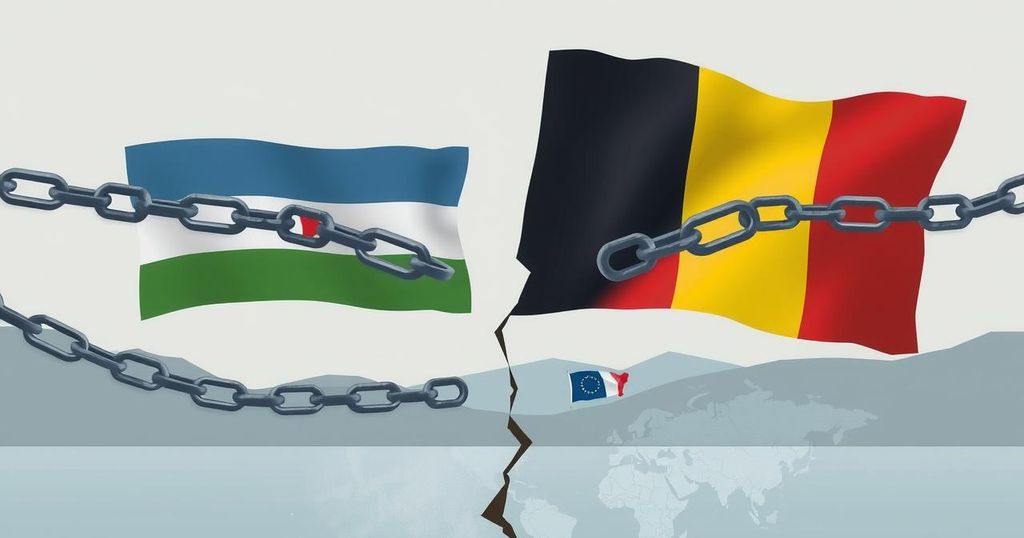Rwanda and Belgium cut diplomatic ties as EU sanctions were imposed on Rwandan military leaders due to their backing of rebels in the Democratic Republic of Congo, which has seen significant conflict and resource exploitation. The situation escalated further as both nations exchanged hostile statements and actions, highlighting ongoing tensions within the region.
On Monday, Rwanda and Belgium officially severed diplomatic ties following an agreement by European Union (EU) ministers to implement sanctions against Rwandan military leaders and affiliates of the Rwandan-backed rebel group in the Democratic Republic of Congo (DRC). Tensions heightened as Rwandan-supported M23 rebels advanced through eastern DRC, capturing resource-rich cities and causing significant displacement and casualties, with the DRC government reporting 7,000 deaths attributed to the conflict.
The EU sanctions target key figures in the Rwanda Defense Force and the M23, as well as a refinery suspected of illegal resource trafficking from eastern DRC. This decision precedes scheduled peace negotiations between the DRC and M23 rebels in Angola, commencing on Tuesday. An EU diplomat emphasized the sanctions as a necessary response to violators of international humanitarian law, clarifying, “This is not a ‘Rwanda-bashing’ exercise…”.
In response to the EU’s stance, Rwanda’s Foreign Affairs Ministry declared a rupture in diplomatic relations with Belgium, demanding the withdrawal of Belgian diplomats within 48 hours. The ministry accused Belgium of siding with the DRC and of spreading misinformation to foster hostility towards Rwanda, criticizing Belgium’s colonial mentality. Conversely, Belgian Foreign Affairs Minister Maxime Prévot condemned Rwanda’s actions as disproportionate, asserting Rwanda’s preference for disengagement over dialogue.
Despite international criticism of the Rwandan forces’ role in DRC, the EU faces allegations of exacerbating the situation. Critics of a recent minerals agreement with Rwanda argued it would enable the smuggling of conflict minerals from DRC. While the sanctions represent a preliminary action, an EU diplomat suggested they should be expanded, indicating ongoing reviews of related critical raw materials policies, though the Commission’s future decisions remain uncertain. Previously, Rwanda suspended a cooperation agreement with Belgium, accusing Belgium of attempting to undermine its development funding and prompting Belgium to reconsider its cooperation in light of Rwanda’s perceived territorial violations.
In conclusion, the diplomatic rupture between Rwanda and Belgium is a significant consequence of the EU’s sanctions against Rwanda regarding its involvement in the DRC conflict. The ongoing humanitarian crisis in DRC necessitates urgent international attention and collaboration to address the violations against its territorial integrity. While the sanctions are a step towards accountability, further measures may be required to effectively resolve the conflict and address the underlying issues at play.
Original Source: www.politico.eu






